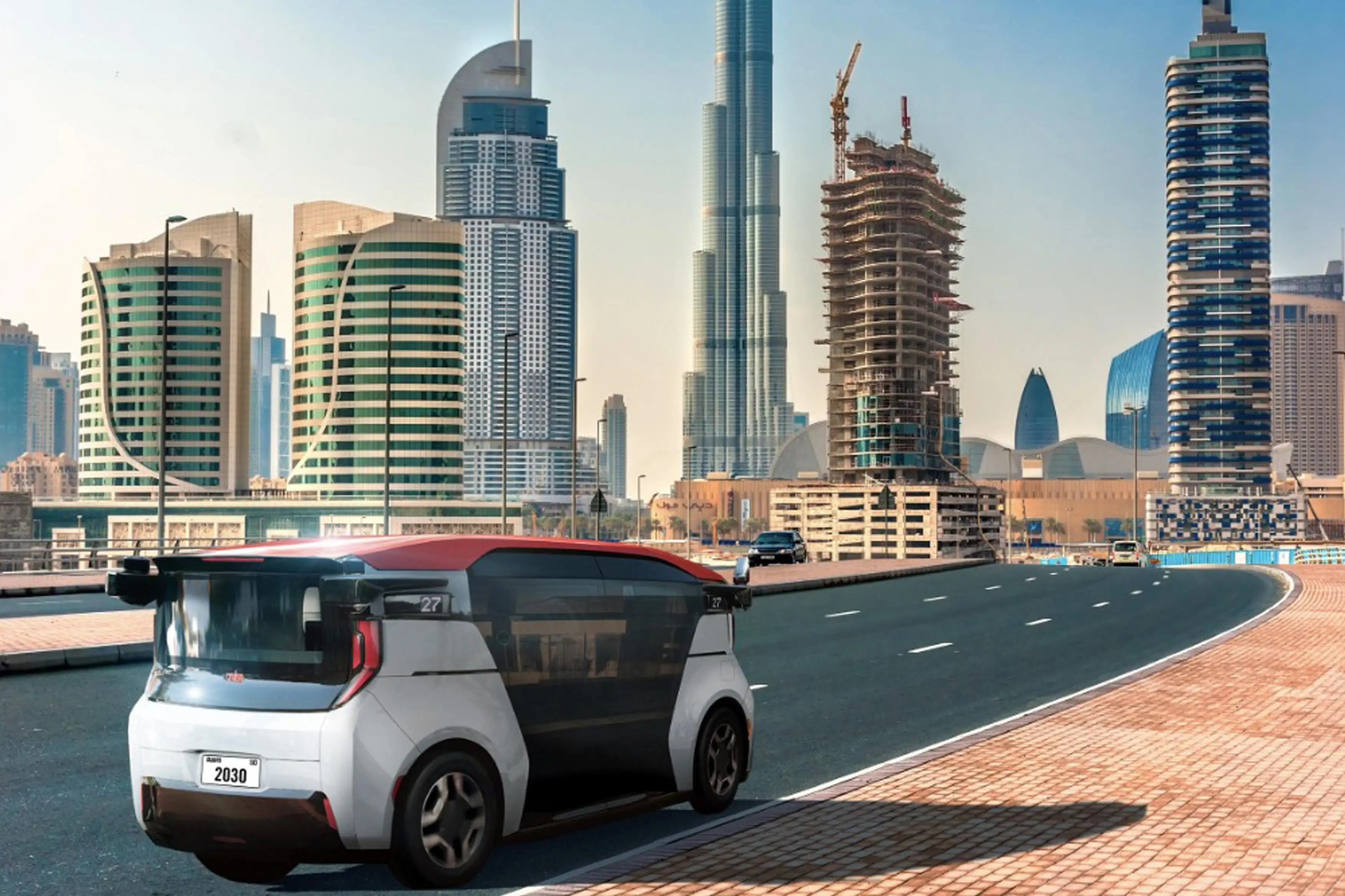PHOTO
UAE - The upcoming Expo 2020 Dubai is set to showcase future mobility from different countries like the largest lift, hyperloop, an airship and the SpaceX rocket, to name a few. But at the centre of it all will be Dubai and the UAE’s surge towards smart transport.
Dubai and the UAE have already set things in motion and are aggressively pushing towards sustainable mobility and reducing the carbon footprint.
Dubai already boasts of a top-of-the-line public transport system with the driverless Dubai Metro and the Dubai Tram, the centrepieces along with its bus operation, which uses cutting-edge technology where passengers can track a bus in real-time. There is also a massive fleet of taxis that serve people and keeps Dubai moving.
Dubai, and the country, has always been a forward-thinking nation and is also very ambitious about electric vehicles (EV), with various incentives like free parking and Salik tags. It has also installed 750 charging stations all over the country.
Self-driving cabs
The emirate is set to shift a gear and hopes to have five per cent of self-driven cabs of its Dubai Taxi fleet on the roads in a couple of years.
The announcement came as part of Dubai Taxi Corporation’s (DTC) Strategic Plan 2021-2023. The Roads and Transport Authority (RTA) aims to overhaul the taxi sector by employing artificial intelligence and smart systems.
And as a step towards that, the RTA has already begun laying the groundwork by signing a partnership agreement with General Motors-backed Cruise to run driverless taxis and shared transport services in Dubai.
The RTA plans to have a limited number of vehicles by 2023 and hopes to scale up operations by having 4,000 self-driving taxis by 2030. This ambitious plan will make Dubai the first city outside the US to operate such vehicles.
As part of Dubai’s 2030 vision for self-driving technology, the emirate will look to reduce transportation costs by Dh 900 million a year and save Dh 1.5 billion a year by reducing environmental pollution by 12 per cent, as well as generate Dh 18 billion in annual economic returns by increasing the efficiency of the transportation sector in Dubai.
Trial run at Expo 2020 Dubai site
The RTA had embarked on a trial run of an autonomous vehicle at Expo 2020 Dubai. The vehicle was used to commute individuals on a dedicated path from the main entrance to staff offices.
The trial run lasted for three months and included testing autonomous technologies, ensuring the safety of individuals, and protecting surrounding properties.
“The Self-Driving Transport Strategy is part of initiatives aimed to support the green economy drive. Trialling an autonomous vehicle at the site of Expo is an achievement and an addition to our efforts to spread autonomous vehicles at various Dubai hotspots,” Ahmed Bahrozyan, CEO of Public Transport Agency, RTA, had said then.
The vehicle that was employed for the trial run used green technologies and was powered by electricity to operate up to 16 hours. It could accommodate 15 riders (10 seated, five standing) and could travel at a speed of 25 kmph with a top speed of 40kmph.
Advanced sensors and high accuracy positioning systems were used in the vehicle. It could monitor obstructing objects, and would automatically slow down when an object emerged. It came to a complete stop when an object came close to the vehicle.
Seeds sown back in 2016
In fact, the seeds were sown back in 2016, when a driverless vehicle underwent a month-long trial on Sheikh Mohammed Bin Rashid Boulevard in Downtown Dubai.
It was a joint venture between RTA and Emaar Properties and saw the electric shuttle named EZ10, built jointly by Omnix International and Easy Mile, put to the test.
The shuttle, with no specific front or rear, ran in both directions along a 700-metre trial route from Sheikh Mohammed Bin Rashid Boulevard and passed through the iconic Burj Khalifa, Dubai Mall, Dubai Opera and Souq Al Bahar.
Since then, the RTA launched a series of test runs at the Dubai World Trade Centre, Business Bay, Sustainable City and Dubailand.
Time to ‘Cruise’
As part of the RTA’s big plan, Cruise, the San Francisco-based robo taxi company that is backed by automobile giant General Motors, will set up shop in the emirate by 2023. It is being said that The Origin, which was unveiled in January last year, will be operational in Dubai in 2023. Cruise tested the vehicles at their base in San Francisco.
China’s paid driverless taxi service
A Chinese company called Baidu tested driverless taxis in Beijing at the end of last year and began a paid driverless taxi service in May this year. The vehicle ferried passengers to Beijing’s Shougang Park, a venue for the 2022 Beijing Winter Olympics.
Singapore, too put autonomous vehicles to the test and in fact, went a step ahead by simulating different scenarios like traffic junctions, crosswalks, bus lanes, slopes and even different weather conditions.
Dubai in top 10
On a broader scale, the UAE featrued in the top 10 list of the 2020 Autonomous Vehicles Readiness Index (AVRI), a yearly survey conducted by KPMG International. The AVRI is a tool that helps measure the level of preparedness for autonomous vehicles across 30 countries like the US, UK, France, Germany, Australia, Japan, India, and many others.
And the UAE was ranked eighth ahead of the UK, Germany, France, Japan, Canada, Spain, Italy and Russia, with a score of 22.23. Singapore jumped to the top spot from second in 2019 with a score of 25.45, with The Netherlands ceding position. The US ranked fourth below Norway and followed Finland, Sweden, South Korea and the UAE, with the UK in ninth.
Copyright © 2021 Khaleej Times. All Rights Reserved. Provided by SyndiGate Media Inc. (Syndigate.info).





















